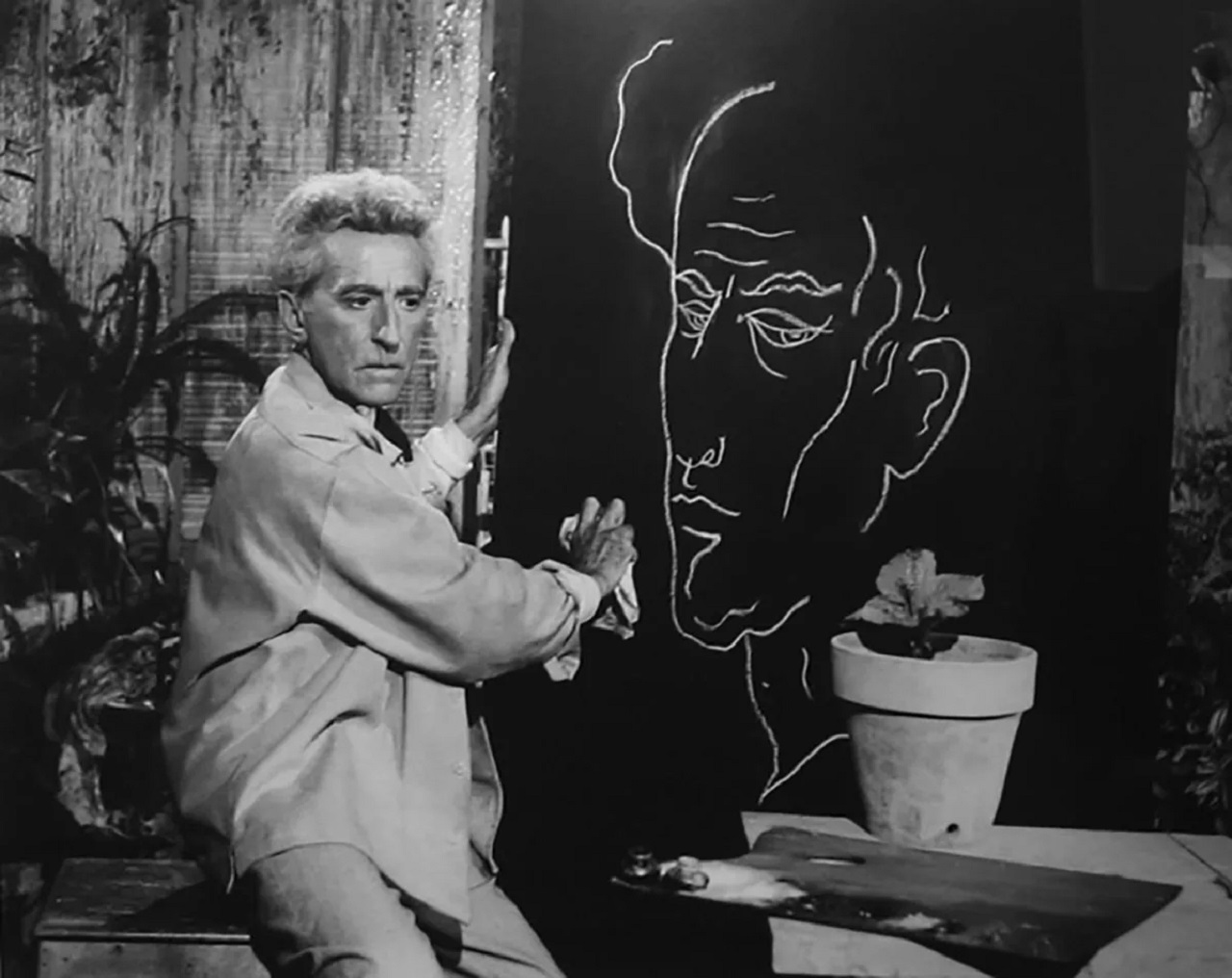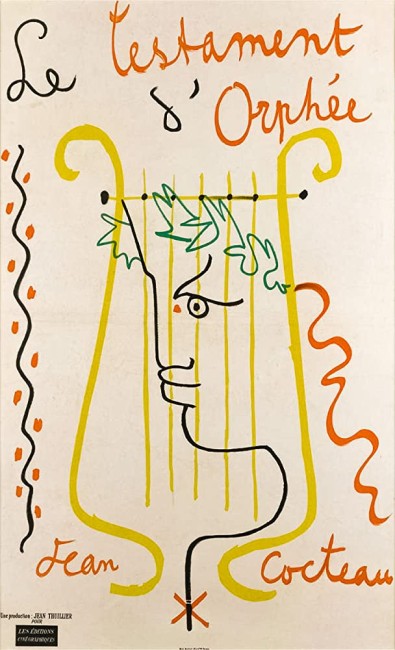(Le Testament d’Orphee)
Crew
Director/Screenplay – Jean Cocteau, Producer – Jean Thullier, Photography (b&w) – Roland Pontoizeau, Music – Georges Auric & Martial Soral, Production Design – Pierre Guffroy. Production Company – Les Editions Cinematografique.
Cast
Jean Cocteau (Himself), Edouard Dermithe (Cegeste), Maria Casares (The Princess), Francois Perrier (Heurtebise), Henri Cremieux (The Professor), Yul Brynner (The Doorman)
Plot
A time-travelling 17th Century poet and a scientist conduct an experiment using bullets that travel faster-than-light. The poet is shot and resurrected as filmmaker Jean Cocteau. Accompanied by Cegeste, the hero from his film ‘Orphee’, Cocteau goes on a journey where he encounters characters from his films and visits places where his paintings are exhibited. He is then placed on trial and ordered to make a defence of his poetry and filmmaking.
One would hardly imagine a cinematic poet like Jean Cocteau would be so crass as to make something like a mere sequel to his acclaimed Orpheus/Orphee (1950). Instead, what Cocteau gives us perhaps cinema’s first meta-film. Here Cocteau, playing himself, sets out to conduct a re-examination of his own life and go on a quest for meaning in his own art.
Throughout the film, characters from Orpheus turn up, the plot itself echoes The Blood of a Poet (1930) and we visit some of Cocteau’s paintings. Cocteau even parodies himself – in an in-joke on Orphee when two uniformed men on motorcycles turn up, they are merely traffic officers. As might be expected, Cocteau’s quest for meaning becomes dreadfully ponderous, even rather gloomy, and weighted down by intellectual pretensions. Even worse, as an actor Cocteau walks through the film stiff and awkwardly, certainly not at all seeming an obsessed intellectual artist.

While one could not care for Jean Cocteau’s intellectual quest, the film has considerable visual magic to it. Cocteau gets an enormous amount out of one of the oldest tricks in the cinematic magician’s book (as old at least as his countryman Georges Melies) – film played in reverse. We see him making a torn and crumpled flower whole again, rubbing a self-portrait into being on a blackboard, a photo of Edouard Dermithe becoming unburnt in a fire and Dermithe emerging out of the ocean as though in one bound that takes him back up to a cliff top.
The opening moments with Cocteau popping in and out at random moments of a scientist’s life does a charming job of presenting Einstein in terms of poetry. The film ends delightfully with a note from Cocteau: “You may notice many well known people have appeared in this film. They were chosen not because they were are famous but because they suited the part and because they are my friends.”
Jean Cocteau’s other films of genre interest include:- the surrealist work The Blood of a Poet (1930) and the fairytale adaptation Beauty and the Beast (1946).


